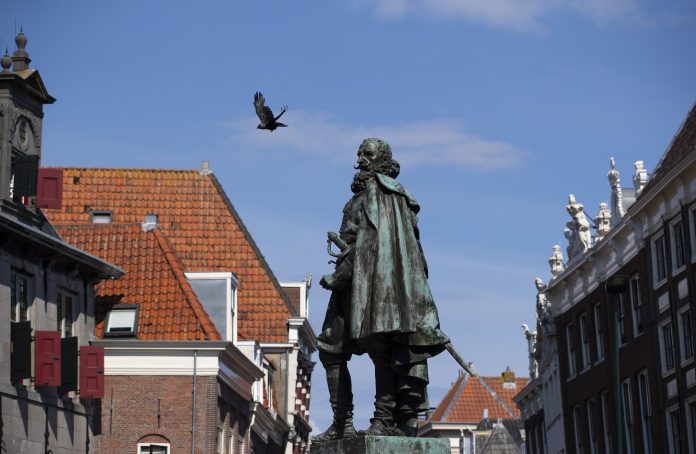
The Netherlands marked 157 years since the country abolished slavery on July 1, 1863, with a solemn event in Amsterdam on Wednesday that also reflected on the Black Lives Matter movement that swept the globe in the aftermath of the death of George Floyd in Minneapolis.
The commemoration, which was closed to the public because of coronavirus prevention measures, came amid intense scrutiny of Dutch involvement in the slave trade that has gained new urgency following protests across the country since Floyd’s May 25 death at the hands of Minneapolis police.
Protesters in the Netherlands have vandalized several statues of historic figures linked to the slave trade and called for such statues to be removed.
From the 17th century until the abolition of slavery in 1863, Dutch merchants and ships were heavily involved in slave-trading, and plantation owners in Dutch colonies in the Caribbean used slave labor.
The national slavery monument in Amsterdam’s Oosterpark was decorated for Wednesday’s observance with black and red cloths, colors of mourning in West Africa.
The government used the day to announce plans for a nationwide dialogue to confront the country’s historic links to slavery.
The dialogue will focus on “how the slavery history still influences our daily lives,” Education Minister Ingrid van Engelshoven said. “I hope that it will open the eyes of many Dutch people, young and old.”
Later Wednesday in a parliamentary debate, Prime Minister Mark Rutte said he did not consider the time right to apologize for the country’s role in slavery, despite calls for a formal apology.
“For some people that goes too far. Can you hold people alive today responsible for the distant past?” Rutte said in comments aired by national broadcaster NOS. “And with that, apologies carry the risk of polarizing society instead of giving rise to dialogue and inclusion.”
Amsterdam Mayor Femke Halsema said the Black Lives Matter movement had brought about a tipping point and created “an unstoppable new people’s movement.”
“It’s a movement that is not destroying traditions, but helping to improve traditions and create new traditions, that doesn’t wipe out our past, but adds new histories,” she said.
The Amsterdam Municipality is investigating the city’s role in the trade of slaves and is expected to make a formal apology when the investigation is completed.
















